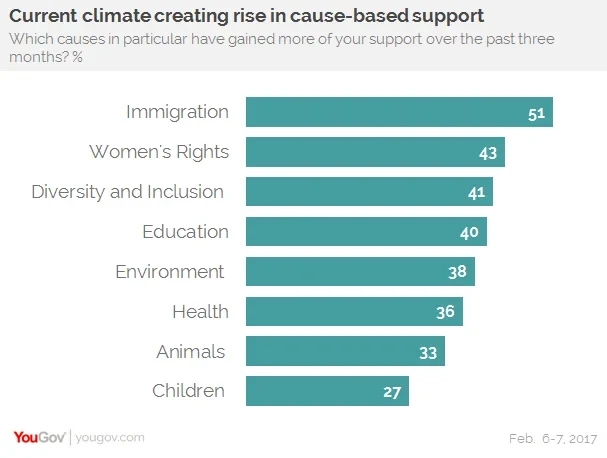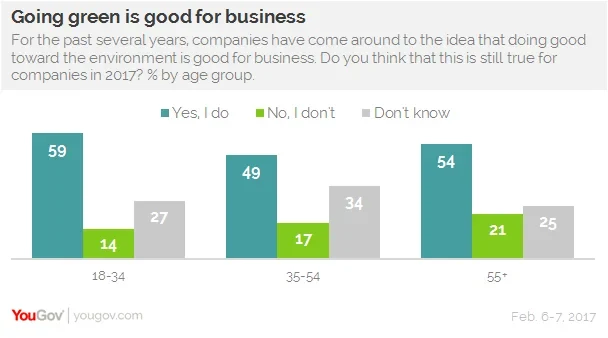New data also shows that half of Millennials approve of brands taking a stance on social issues
Many popular brands have recently come under fire for taking a firm stance on a hot-button issue. The consequences can be seen on Twitter, where feeds are filled with trending hashtags, such as #BoycottStarbucks and #GrabYourWallet.
Recent YouGov data suggests that this frenzy of social media activism shouldn’t come as a surprise, since the clear majority of US adults (67%) support boycotting a brand due to conflicting political views. Furthermore, 59% of Americans concur that they would boycott a brand’s products or services if they strongly disagreed with the brand’s stance on a particular social issue.
Additional data shows that interest in various social issues is growing. Between November 2016 and February 2017, for example, 31% of US adults increased their level of support for a specific cause. The issues that gained the most backing during this time period were immigration, women’s rights, diversity and inclusion, education, and the environment.

The health of the environment seems to be a particularly pressing matter for Millennials, as illustrated most recently by the outpouring of young adults who came together to protest the Dakota Access Pipeline. Figures show that 59% of Millennials believe doing good for the environment is still good for business in 2017.

That said, Millennials aren’t only pushing for companies to go green. Half approve of brands taking a public stance on any social issue. On the other hand, only 27% of those aged 55+ approve of brands taking a public stance. This difference in opinion suggests that Millennial consumers have very different expectations and desires when it comes to brand activism.
Despite differing views on whether brands should vocalize their opinions publicly, 58% of all Americans have gone out of their way to not buy something from a company whose values misalign with their own. While it may be in a company’s best interest to take a stand on certain issues that matter to them, it is imperative that they do so with an eye towards potential consumer reactions.
To download the full report, click here








